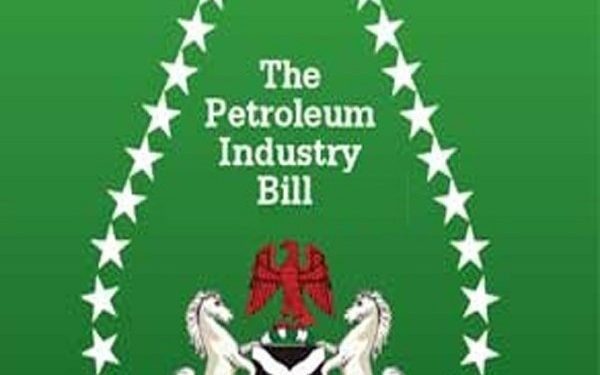Oil firms to fund development of host communities in PIB plan
Oil companies are to put aside 2.5 per cent of their annual expenditure for the development of their host communities, going by the proposed Petroleum Industry Bill (PIB).
The firms are to deploy 75 per cent of the budget to implement capital projects in such communities with an understanding that the beneficiaries would watch over the projects.
The proposed PIB states that the special vote would be used to fix damaged facilities in any community that allows vandalism of oil installations in its domain.
It was learnt that the Federal Government came up with the stick-and-carrot approach as a strategy to protect oil installations and production by host communities.
The PIB was last transmitted to the National Assembly by President Muhammadu Buhari for consideration and passage.
The proposed bill also contains a lot of radical changes to the management and operations of the nation’s petroleum sector.
It recommends that communities where oil facilities are located or where oil exploration and production takes place protect such facilities and operations at all cost.
A development trust fund is expected to be established by oil companies to fund development projects.
To benefit from the projects/fund, a host community must have a near-zero vandalism incidence as a case or cases of vandalism or hostility against oil facilities means loss of any right to be a beneficiary of the development project(s) through the trust fund.
Section 257 (2) of the proposed law states that “where, in any year, an act of vandalism, sabotage or other civil unrest occurs that causes damage to petroleum and designated facilities or disrupts petroleum activities within the host community, the community shall forfeit its entitlement to the extent of the cost of repairs of the damage that resulted from the activity with respect to the provisions of this Act within that financial year.”
Section 257 (3) also states that “the basis for computation of the trust fund in any year shall always exclude the cost of repairs of damaged facilities attributable to any act of vandalism, sabotage or civil unrest.”
According to the bill sited by The Nation at the weekend, the oil companies are expected to set aside 2.5 per cent of their annual expenditure for the development of their host communities. But such money can be used to fix oil facilities vandalised in the various communities if that is allowed to happen.
The oil companies classified as Settlers in the proposed law are expected to carry out a need assessment of their host communities after they are granted any license or lease. Such assessment will be based on the social, environmental and economic needs of the communities.
The need assessment is expected to determine the specific needs of each host community, ascertain the effect that the proposed petroleum operations might have on the community and provide a strategy for addressing the needs and effects identified.
Every settler is expected to develop a host community development plan based on the findings of the needs assessment which shall be submitted to the relevant government agency for proper monitoring.
According to the proposed law, the objective of the Host Community Development Trust Fund is to foster sustainable prosperity, provide direct social and economic benefits from petroleum operations, enhance peaceful and harmonious co-existence and create a framework to support the development of every host community.
The oil companies are expected to incorporate a trust in the community where they operate within 12 months from the effective date of their operations.
Section 238 of the bill states: “Failure by any holder of a licence or lease governed by this Act to comply with its obligations under this chapter may be grounds for revocation of the applicable licence or lease.”
The proposed law suggests changes to the operations in the oil and gas sector in Nigeria. It recommends the scrapping the Department of Petroleum Resources, the Petroleum Product Pricing Regulatory Authority and the Petroleum Equalisation Fund and commercialising the Nigeria National Petroleum Corporation (NNPC).
It suggests that they should be replaced by the Nigeria Upstream Regulatory Commission, Nigeria Midstream and Downstream Petroleum Regulatory Authority and the Nigeria National Petroleum Company (NNPC) Limited.
The bill also wants the ownership of oil and gas resources in the country vested solely in the Federal Government.
When it becomes operational, the law is expected to establish a progressive fiscal framework that will encourage investment in the petroleum industry, balancing rewards with risk and enhancing the Federal Government’s revenue.
Section 297 of the proposed law stipulates the penalty for non-compliance with the regulations of the law, imposing an administrative fine of up to N10 million on defaulters and on conviction to a fine of another N10 million.
It also provides that a person who makes an incorrect account, incorrect schedule or statement or gives false or misleading information concerning any matter affecting his liability to hydrocarbon tax is liable to an administrative fine of N15 million or one per cent of the amount of tax which has been undercharged.
Upon conviction, such a person shall also be liable to a fine of N15 million or one per cent of the amount. (The Nation)


